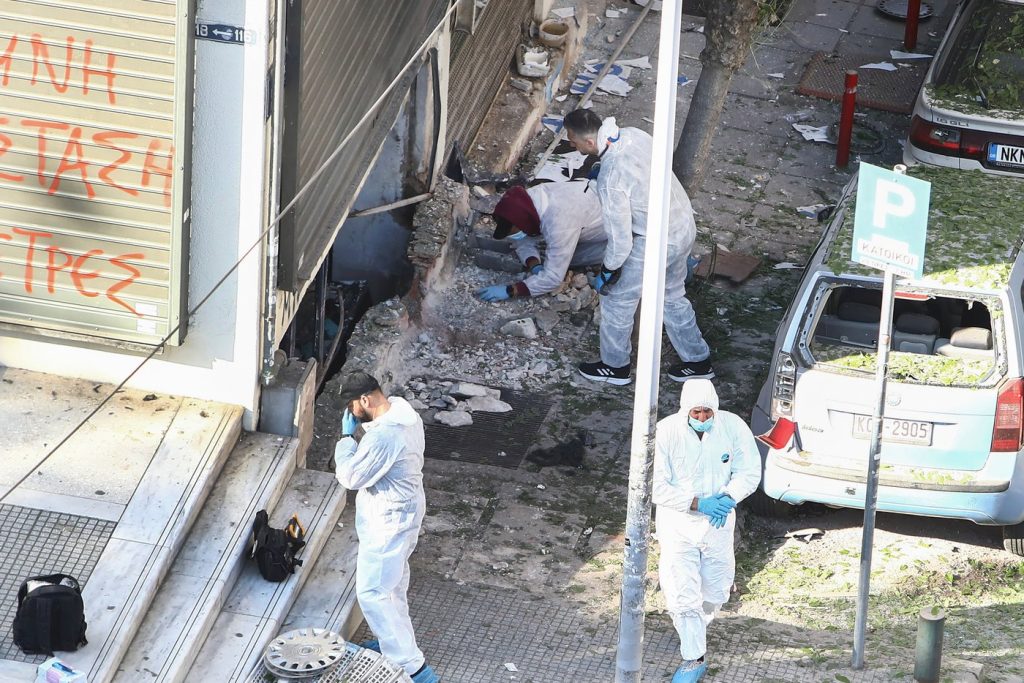In a tragic event in Thessaloniki, Greece, a 38-year-old woman was killed early Saturday morning when a bomb she was carrying exploded in her hands. The incident occurred around 5 a.m. as she was allegedly attempting to place the explosive device outside a bank branch. The explosion not only killed the woman but also caused significant damage to several nearby storefronts and vehicles.
Following the explosion, local police stated that the deceased woman had been previously known to authorities for participating in multiple bank robberies. This history of criminal activity has prompted investigators to look into her possible affiliations with extreme leftist groups, which have been known to engage in acts of violence and terrorism in the area.
The police have launched an investigation into the incident to determine the circumstances surrounding the woman’s actions and the nature of the bomb. The area has been cordoned off as forensic experts conduct a thorough examination to gather evidence that may shed light on the situation. The explosion not only raises concerns about public safety but also highlights ongoing tensions related to political extremism in Greece.
As forensic teams work to analyze the evidence at the scene in Thessaloniki, the impact of this event is felt across the local community. The reaction from the public has been one of shock and concern, as such incidents challenge the sense of safety in urban areas. This particular part of Greece has witnessed a surge in politically motivated violence in recent years, stirring debates about law enforcement and public policy aimed at preventing further occurrences of such tragedies.
The police statement regarding the woman’s past criminal activities adds another layer to this complex narrative. While the investigation continues, it serves to demonstrate the intersection of crime and political ideology that remains a poignant issue in contemporary Greek society. As authorities dig deeper into the motivations behind her actions and connections to any extremist groups, the fallout from this explosion may lead to broader discussions about security measures and preventative actions needed to mitigate future risks.
This incident comes at a time when Greece has been grappling with various challenges, including economic concerns and social unrest. The explosion raises pertinent questions about public safety, the efficacy of law enforcement, and the influence of extremist ideologies. The effects of this tragic event will likely resonate throughout Thessaloniki and beyond, as community leaders and residents seek answers and reassurance in the wake of this violent occurrence.











